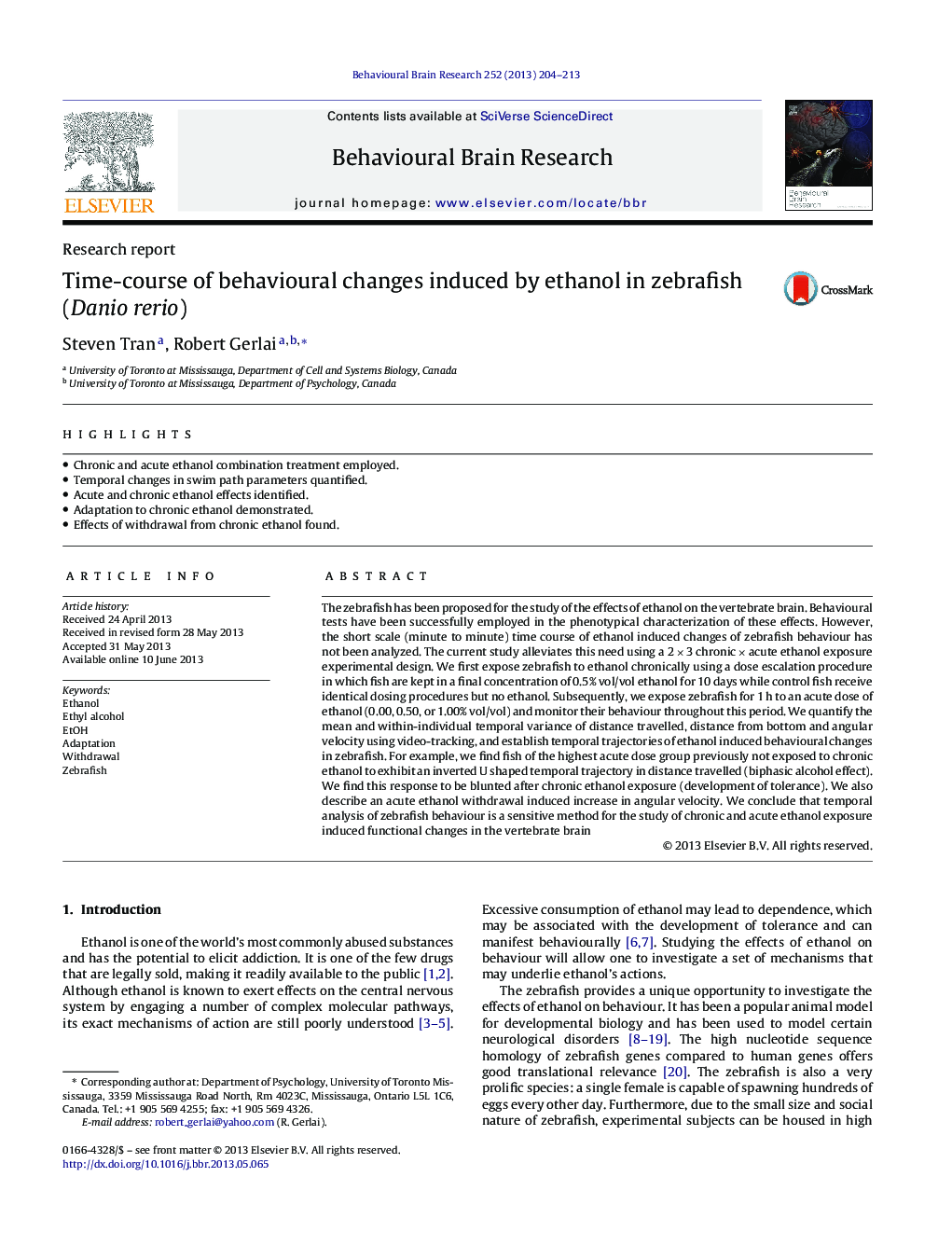| Article ID | Journal | Published Year | Pages | File Type |
|---|---|---|---|---|
| 4312609 | Behavioural Brain Research | 2013 | 10 Pages |
•Chronic and acute ethanol combination treatment employed.•Temporal changes in swim path parameters quantified.•Acute and chronic ethanol effects identified.•Adaptation to chronic ethanol demonstrated.•Effects of withdrawal from chronic ethanol found.
The zebrafish has been proposed for the study of the effects of ethanol on the vertebrate brain. Behavioural tests have been successfully employed in the phenotypical characterization of these effects. However, the short scale (minute to minute) time course of ethanol induced changes of zebrafish behaviour has not been analyzed. The current study alleviates this need using a 2 × 3 chronic × acute ethanol exposure experimental design. We first expose zebrafish to ethanol chronically using a dose escalation procedure in which fish are kept in a final concentration of 0.5% vol/vol ethanol for 10 days while control fish receive identical dosing procedures but no ethanol. Subsequently, we expose zebrafish for 1 h to an acute dose of ethanol (0.00, 0.50, or 1.00% vol/vol) and monitor their behaviour throughout this period. We quantify the mean and within-individual temporal variance of distance travelled, distance from bottom and angular velocity using video-tracking, and establish temporal trajectories of ethanol induced behavioural changes in zebrafish. For example, we find fish of the highest acute dose group previously not exposed to chronic ethanol to exhibit an inverted U shaped temporal trajectory in distance travelled (biphasic alcohol effect). We find this response to be blunted after chronic ethanol exposure (development of tolerance). We also describe an acute ethanol withdrawal induced increase in angular velocity. We conclude that temporal analysis of zebrafish behaviour is a sensitive method for the study of chronic and acute ethanol exposure induced functional changes in the vertebrate brain
